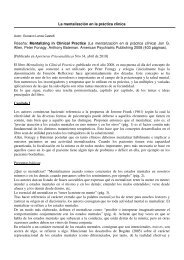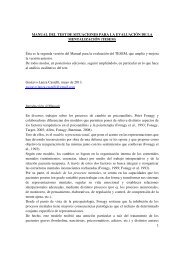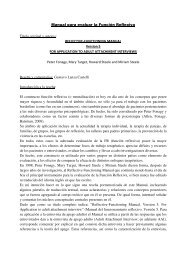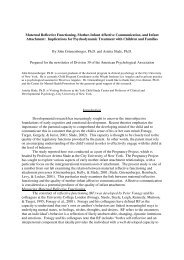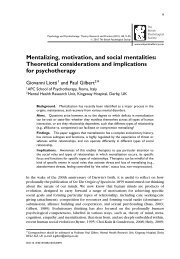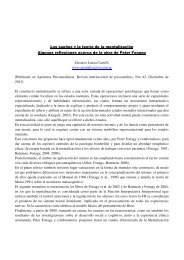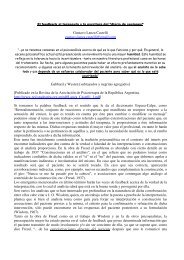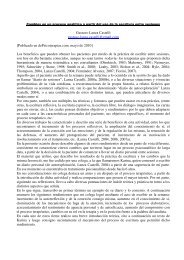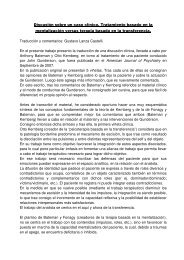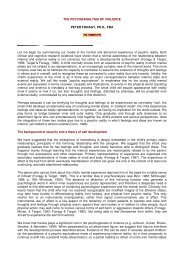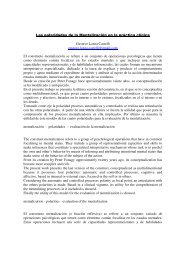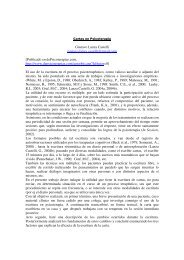Mentalization, Mental States and Affect Elaboration - mentalizacion y ...
Mentalization, Mental States and Affect Elaboration - mentalizacion y ...
Mentalization, Mental States and Affect Elaboration - mentalizacion y ...
You also want an ePaper? Increase the reach of your titles
YUMPU automatically turns print PDFs into web optimized ePapers that Google loves.
connections with others. The discourse<br />
is markedly philosophic <strong>and</strong> abstract.<br />
Emotional situations <strong>and</strong> important<br />
facts of life are described as if part of a<br />
scientific documentary. Language can<br />
be cryptic, neologisms may appear. The<br />
detachment is more structural than<br />
defensive. The syntax is good. The<br />
subject is usually under a pragmatic<br />
impact creating distrust or disbelief. He<br />
responds by being impersonal. To the<br />
extreme, the patient may sound like a<br />
“talking dictionary”.<br />
Analyst’s complementary style. A<br />
dramatic aesthetic style typically links<br />
representation <strong>and</strong> affect, using<br />
symbols <strong>and</strong> images to create an<br />
immediate impact, which tends to get<br />
the listener to experience more<br />
affective involvement.<br />
Such minor dissociation makes<br />
possible to keep facts <strong>and</strong><br />
situations vivid in our memory.<br />
Silence <strong>and</strong> withdrawal can be<br />
used as a defense <strong>and</strong> protective<br />
position against the transferential<br />
pressures. It may become an<br />
important “refuge” in order to<br />
find a better way to interpret the<br />
patients’ conflicts.



